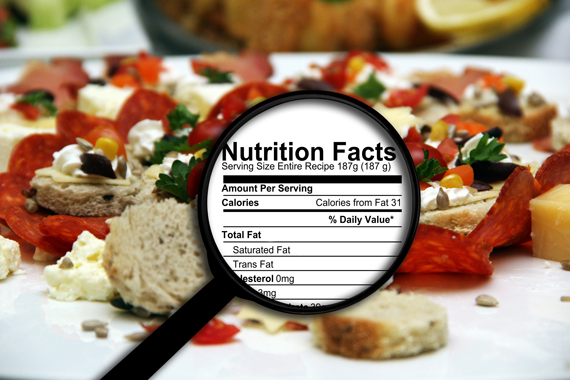Do you know how much money we spend on diet products?
Americans spend more than $60 billion annually on trying to lose weight.
It's estimated that in the US up to $210 billion in medical costs stem from obesity and related problems. That's almost 21 percent of the total US health care costs that are obesity related.
And everyone is trying to lose weight, yet almost 98 percent of those who do gain it all back within two years, with many even going on to gain back more weight than they lost. How can you be successful at losing weight if you only have a two percent chance of achieving long term results and maintaining your weight?
A recent study from Cornell University tried to find out whether junk food and soda are to blame for this obesity epidemic. Researcher David Just concluded that they were not:
Just because those things can lead you to get fat doesn't mean that's what is making us fat", says Just. "By targeting just these vilified foods, we are creating policies that are not just highly ineffective, but may be self defeating as it distracts from the real underlying causes of obesity.
The study showed too that the daily calorie intake of the average american has risen from 2039 calories in 1970, to 2544 calories in 2010. So we are eating over 500 calories more per day than four decades ago.
This shouldn't have happened without us realizing it! But now that it has, what is the solution?
Unfortunately just cutting out just junk foods and soda is not enough for us to lose and maintain a healthy weight, because as Professor Just showed, most of the extra calories are actually not coming from junk foods, they're coming from grains, oils and dairy fats.
The solution is to educate ourselves and give real attention to what we are eating. Knowledge of nutrition can save you time, and money, and certainly your health.
1 - Food Journaling
Monitoring your daily food intake can also make you realize how much food you are eating, often without even realizing it.
You may like to start writing down your food log. You can note it on your phone, or even just start out by taking a photo of each meal and snack as a record of what you're eating and drinking.
When you know what you're eating you can check the ingredients - just do an online search, or use a food tracking site or app.
Studies show that when you keep a food journal you may lose weight 50% faster than those who do not track their food. Just by writing and then checking your meals something big happens - you become more aware of what you're eating, and you're already on the right path to choosing better and healthier options. You'll learn that foods that are low in nutritious value are often high in calories, but these are "empty calories" so after eating you'll feel hungry sooner. You may like to change to more filling, nutrient dense foods.
2 - Reading Food Labels
It's not just about how many calories you consume, because all calories are not equal. For example a donut and a small handful of almonds may both have 200 calories, but I think you can guess which is the healthier choice!
So make sure you read the ingredient list well. A good rule is that if you can't pronounce the ingredients then your body will not like them.
I suggest you start searching and learning what the different ingredients mean, and what you are really putting in your body. When you know what's in the food you eat you will automatically want to get the best option.
3 - Add Nutrients To Your Diet
When you're dieting you don't need to just remove foods from your diet - it's the quality of the food you're eating that counts.
Think for a moment, why do we eat? Our bodies need vitamins, minerals, proteins, carbohydrates and fats in order to work correctly and provide us energy for life. So if you don't eat nourishing foods you're not giving your body what it really needs and you may feel hungry again soon after your meal.
You may like to try adding one to two servings of veggies to each meal. And preferably cook your veggies lightly, or even eat them raw, because so much of the nutritional value can be lost when you overcook veggies.
4 - Listen To Your Body
Be aware of how you feel after you eat. Do you feel energized? Or tired and hungry?
And how is your mood? Your mood affects what you eat, and what you eat affects your mood. If you give a little more attention to how your body feels then you'll find it much easier to find the foods that are best for you.
5 - Start Learning About Nutrition
Read, watch and study your body and what you're eating and drinking. There are so many books, articles and documentaries that will help you becoming your own best nutritionist with the knowledge to improve your health and maintain it.
The good news is that once you start it gets easier every day! So just take it one day at a time.
"Listen to everyone, follow no-one"
-- Dean Karnazes
If you want to lose weight, be healthy and stay healthy then you must educate yourself and study your own body.
Enjoy your health journey!
